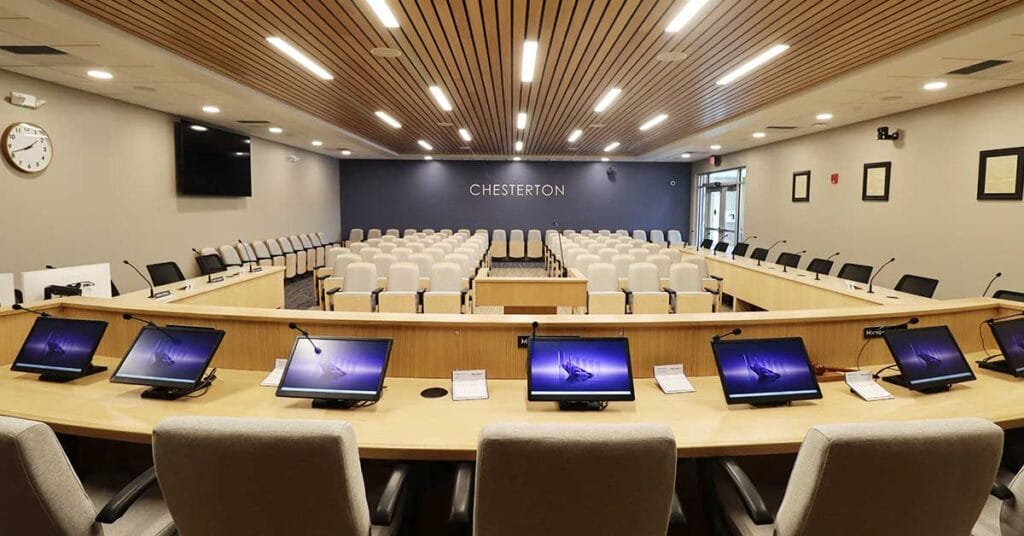
Assorted cleaner air initiatives by the Ports of Indiana-Burns Harbor has landed it regional recognition.
Northwest Indiana Partners for Clean Air recently honored the Region’s top air quality leaders, including the Ports of Indiana-Burns Harbor. Four awards were presented for voluntary actions to improve air quality in 2021.
Winners were selected from nominations submitted to the Partners for Clean Air Steering Committee earlier this year.
The Ports of Indiana-Burns Harbor received the industrial award, for multiple clean air projects undertaken by the port and its tenants in 2020. The port secured funding through the Indiana Office of Energy Development’s grant program to add an all-electric security vehicle to its operations in Burns Harbor.
The Port also received grants in 2020 through the Indiana Volkswagen Environmental Mitigation Trust Fund grant program for the installation of an electric vehicle charging station.
“We appreciate South Shore Clean Cities for nominating us and are grateful for the recognition of our concerted efforts to support clean air at our ports,” said Vanta Coda, CEO of the Ports of Indiana. “We will continue to advance environmental values and reduce our carbon footprint whenever possible to maintain our world-class port system.”
Many port tenants have converted equipment from diesel to electric hybrid vehicles. Port officials and volunteers planted hundreds of deciduous and coniferous trees around the Burns Harbor port to reduce stormwater runoff, prevent fugitive dust and increase biodiversity.
In 2022, the port at Burns Harbor will open a six-acre truck marshalling yard where drivers can turn off the trucks and rest in an enclosed reception area while waiting to unload/load freight.
All three Indiana port locations received the Green Marine certification in 2020, the first state-wide port authority to achieve the distinction.
Green Marine is an environmental certification program for North America’s maritime transportation industry. The voluntary initiative strives to surpass regulatory requirements in measurable ways in key areas such as greenhouse gases and air pollutants, spill prevention, dry bulk handling and storage, community impact, storm water and waste management and underwater noise.



